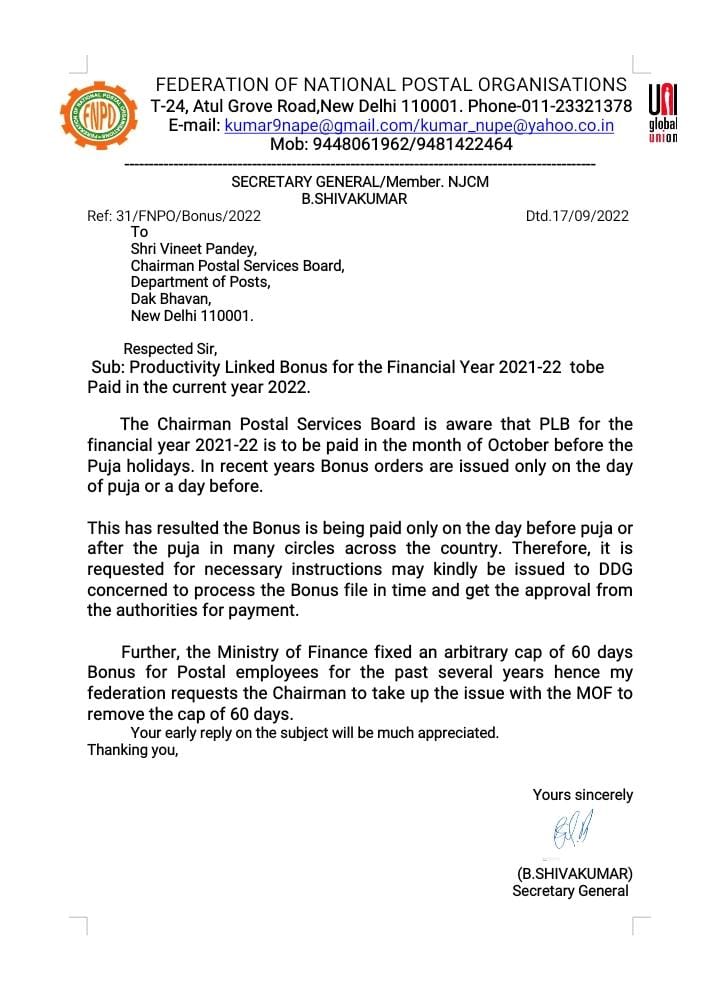
Withholding of Results of AAO LDCE-2022 - Reg No. 302/2021/AAO Union matters/PACEGovernment of India Ministry of Communications,Department of Posts, Dak Bhawan, PA Wing, New Delhi 110001Dated 27.09.2022TOSh. A K Shandilya General Secretary Bharatiya Postal Accounts Offices Employees Association, New DelhiSub:- Restoration of SCF quota in AAO promotion and withholding of results of AAO LDCE-2022-reg..I am directed to...
Read More ->>











%20form_page-0001.jpg)


